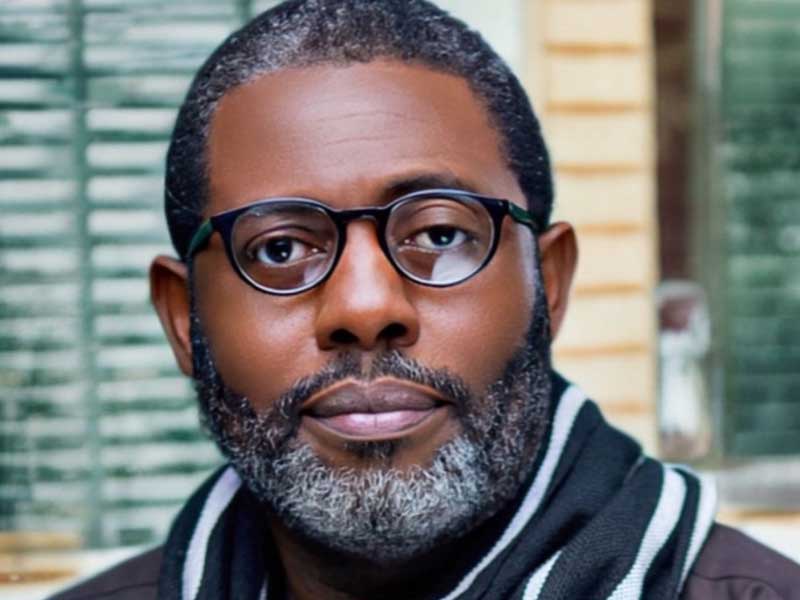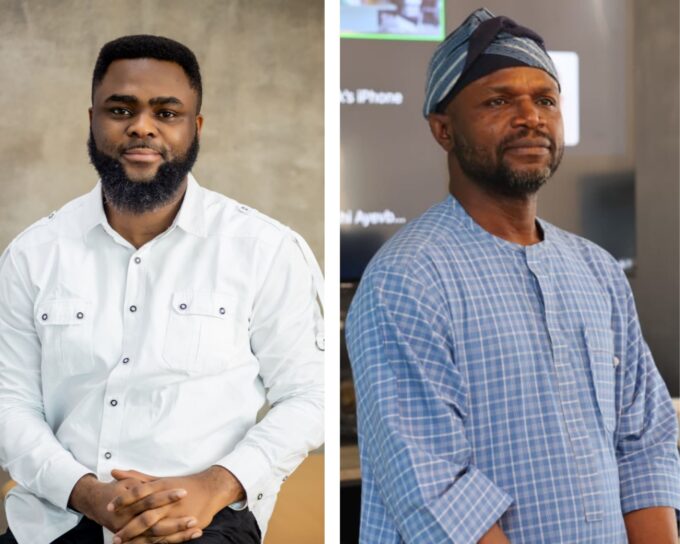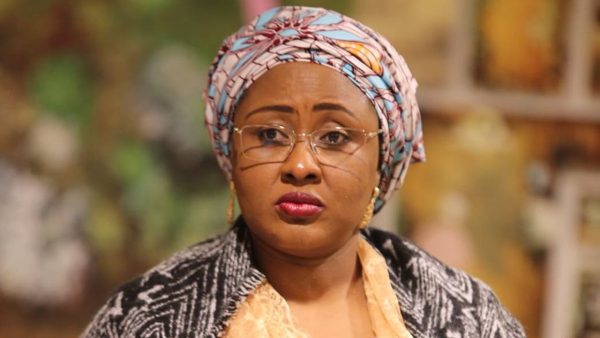Vanessa Obioha
For a while now, the renowned filmmaker Femi Odugbemi has been working on his new outfit, a creative hub where, as he tells me on a recent tour, he plans to bring creative stories rooted in African experiences to life. It’s a new chapter for the filmmaker who has his hands in many creative pies. Filmmaker, check; film trainer/lecturer, check; film festivals and awards juror/judge, check; academy awards voting member, check; career mentor, check. You name it, and he’s been there, so it’s so difficult to box him.
But with his latest project, Odugbemi now resides in a new box. A creative hub that resists easy definition. Always the cerebral mind, he deliberately painted this new box black and named it BLACKBox. There’s a reason for that. For him, black is not emptiness but the colour of mystery, and mystery, he says, is the prelude to revelation.
“To call black a happy colour may seem paradoxical in a world conditioned to associate joy with brightness,” Odugbemi, explains, stating that rather than treating black as darkness, void or menace, it should be seen as a sacred, fertile and even a joyful being of state.
“Consider happiness, which is not always loud. Sometimes, it is still, like midnight. Sometimes, it is private, like a secret between the soul and the universe. Black holds this kind of happiness—the joy of depth, of meaning, of potential not yet spoken.”
Blackness, he adds, is not loss, but becoming.
In African cosmology, the filmmaker argues that black is the colour of the ancestors, the eternal, the beginning of the circle.
“It is revered, not rejected. Celebrated, not feared. It carries the weight of the sacred, the dignity of time, and the joy of knowing that what is hidden is not lost, but waiting to be revealed. In black, truth is wrapped in mystery, and hope dressed in shadows. Every mystery has deep insight. And black is the canvas of all insight.”

Indeed, BLACKBox is the canvas of all insight. Step inside BLACKBox and the metaphor comes alive. The reception glows with warm light and panelled designs, hinting that imagination is about to take flight. But that’s not all.
In one corner, Odugbemi has created a striking metaphor for African decolonisation: a curated space where masks, drums, and other relics are displayed to honour the continent’s history and culture.
Beyond this, every room is designed with purpose and history such as the editing room with 11 systems, as well as reels and DVDs; workshop halls and co-working spaces.
A lover of the arts, Odugbemi has infused the building with subtle details. Along the staircase, stained-glass windows blaze with colour, their abstract face designs lending both light and symbolism to the space. Even the walls carry inspiration. Elsewhere, a wall of glass blocks has been transformed into a mural — the silhouette of a woman framed by blossoms and butterflies, a poetic reminder that imagination here is always in bloom.
Here and there, painted quotes break through in bold lettering. One proclaims: “Teamwork makes the dream work.”

Each detail insists on decolonised imagination, reminding storytellers to root their craft in culture, experience, and identity in such a way that it positions their communities as leaders or civilisation as superior. And still, there is more to come. Podcast studios are part of the vision.
But Odugbemi is quick to clarify that BLACKBox is not a school.
“It is a residency, a lab and we would not have more than 20 people here at once.”
Everything about BLACKBox is captured in its tagline: Craft. Create. Captivate. The hub focuses on the development stage of filmmaking, the most overlooked but, according to Odugbemi, the most crucial.
“We need to provide support for the development phase. We don’t have enough support, and the development phase is not about equipment. It’s about knowledge.”
BLACKBox will essentially not just shoot an idea but rather take the idea through the three phases of production which are development, production, post production
He puts it this way:
“It’s about making sure that storytellers who want to be intentional, who want to be able to audit what they are doing, who want to prepare the script in the best possible way before production, have access to support.”

In a way, Odugbemi is positioning BLACKBox at the junction of where Nollywood ought to be. To do so means teaching the next generation the right skills to get there. As one who is always passionate about storytelling because, according to him, stories are us, it is important that imagination reengineering is understood and applied in Nollywood.
Through mentorships and workshops, Odugbemi plans to correct the missteps that plague Nollywood, such as mismatched genres and shallow characterisation.
“There are a lot of conventions in each of these genres that people need to learn. And not only learn, but also apply when they’re writing,” he notes. He is equally critical of actors who recycle old performances rather than embody fresh characters.
“Everything that happens as a reality in any community is, first of all, telegraphed by the stories. I think we have to understand how important stories are and how we shape them, and it doesn’t matter whether it’s in a poem, a film, a theatre play or whatever,” he says.
“Every story has a premise, a purpose, and the particulars of it are far more important than the emotional reactions of laughter, of crying or feeling love or fear; all of that is the immediate emotional reaction. But a successful story is actually successful when after the story, you are forced to think about its lessons. You are forced to think about its paradigms. You are forced to take an issue in the world and say, Is this what I still think, or has this changed my mind? How does this story shape how I see the world?”
The future of Nollywood, Odugbemi insists, is not only about chasing commercial platforms but also marrying artistry with commerce.
“For us to win awards, to do all the things we are hoping to do, to be able to replicate the kind of sputtering successes that we’re beginning to have, we have to be able to have a system and a conveyor that manages to bring both a commercial outcome from an artistic intent. It is also the only way we are going to actually win markets outside of our own.”
“Nigeria can be different if Nollywood were taught to understand imagination engineering with more intentionality and purpose,” he concludes.
If that vision takes root, the future of Nollywood may well begin in this BlackBox, where stories are not just told, but reborn.


















Leave a comment